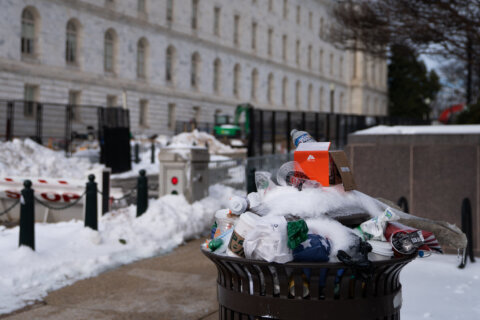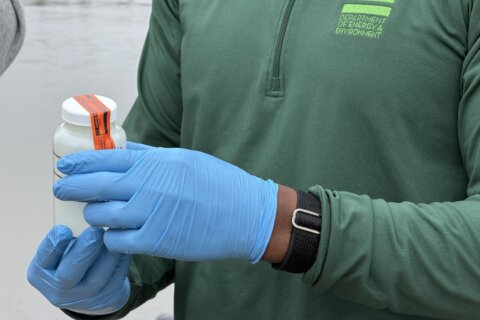This video is no longer available.
When the James Beard Award winners were named last week, the head chef at Oyster Oyster in D.C.’s Shaw neighborhood had to wait until the very end to find out if he would be named Outstanding Chef.
For chef Rob Rubba, the agony was worth the wait. The winner of what’s described as the “Oscars of Food” seems almost nervous about talking about it too much. But make no mistake, if you dine at his restaurant, he wants to make the most out of everything there; and if it can live on with you for years, that’s even better.
“I’ve been in this industry for 20 years, and about six years ago, I came to this reckoning that I wasn’t really happy with the direction restaurants were going, some of the things I was taught,” Rubba said. “It’s very wasteful, both for the culture of restaurants and the way we were using ingredients.”
He’s using Oyster Oyster to change that. The mission there is sustainability.
For one, that means the restaurant composts as much as it can at the end of every night. There are no single-use plastics or containers, including to-go containers (they will wrap up leftovers with aluminum foil, which is recyclable), as well as no single-use cans or bottles for drinks. Even the candles on your table started off as something else.
“We use our leftover cooking oil to turn into wax that burn tableside,” Rubba said. “It’s very cool, reuse of something in our menu that would normally become biofuel, but given an opportunity to be something else on the table.”
The candleholder is an oyster shell that will eventually get recycled back to oyster reefs. His staff spends about an hour a day making those candles.
The menu is even made of recycled paper and embedded with wildflower seeds that you can take home and plant in your garden. He got the idea years ago when someone gave him a business card made with recycled paper that had flower seeds embedded into them.
Rubba said he planted the business card in a community garden plot, “And guess what? It worked. We had flowers.”
“We never wanted to have menus we have to throw away every night because they get grease on them or people’s hands touch them,” Rubba said.
For Rubba, there’s no compromise when it comes to sustainability efforts, and he’s not willing to cut corners to save a few bucks. But he said he’s not here to preach to you about anything either.
“It can be very doom-and-gloom, and that’s not an approach we want to take,” Rubba said. He’s not going to preach environmentalism to you, but he said, “We’re in an environment where we need change. We’re seeing that with climate change. We’re seeing that with what’s going on in our food systems.”
Winning the James Beard Award for Outstanding Chef requires more than just cooking awesome food. There are also expectations.
The awards committee described Rubba as someone who “served as a positive example for other food professionals, while contributing positively to their broader community.” And sustainability matters to the judges.
“My hope is that getting an award like this isn’t something novel in a few years, and this is just commonplace and everyone is doing it,” Rubba said.








